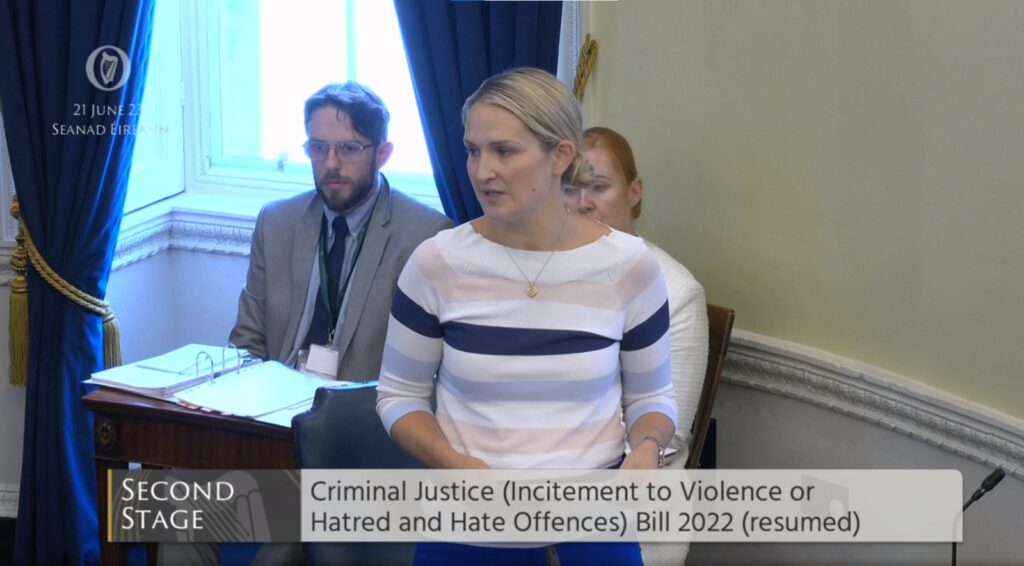‘Hate Speech’ Bill – Summer rain didn’t wash away the Government’s authoritarian streak
Over three months on and nothing seems to have changed. The ‘Hate Speech’ Bill is still on the agenda. The only people publicly supporting the Bill in its present form are Fine Gael (pointedly ignoring their youth wing), and the few NGOs who were complicit in concocting it.
Those supporting the Bill hide behind its ‘hate crime’ elements, rather than expose their draconian view on what constitutes ‘hate speech’ to the public glare.
Recall what that term currently means to Gardaí: ‘any non-crime incident which is perceived by any person to, in whole or in part, be motivated by hostility or prejudice.’
Is this to be the standard in 2024 for investigating, not to say hassling, citizens who have no intention of stirring up hatred or inciting violence but who, rightly, have every intention of making their views known on issues of controversy?
Of course, keyboard citizens are much easier targets than the real criminals night-prowling on O’Connell St.
This Bill is about silencing certain voices and will be used in that manner. Even if every prosecution is thrown out, people will have to endure the criminal process, including arrest and search, as a price to be paid for freedom of expression. The process becomes the punishment.
Looking at the UK we see the kind of thought-policing that we should not let into our country.
Ms Jennifer Swayne, who describes herself as a feminist activist and is disabled, was arrested in January 2021 following a search of her home by Gwent Police who removed an “academic book”, “hundreds of stickers” and “loads of notes”. She had been reported for putting up stickers which were said to be directed at the transgender community.
In 2021 the Crown Office in the UK brought hate crime charges against a gender-critical feminist Marion Millar for sending allegedly homophobic and transphobic tweets. Then there are Caroline Farrow, Kathleen Stock, Jo Phoenix, JK Rowling – all women suffering legal or professional backlashes for expressing support for biology as it really is, not as some oppressive fantasists would have it.
‘Poor Brits’, you might say. But only last week, parents in Dublin appeared reticent to express their view on a gender-linked classroom politicisation incident, when children in the school were instructed to refer to one of their teachers as ‘they’.
What kind of Ireland do we want? One where law-abiding citizens are cowed?
One where intersectional groups seek to use the law to create more divisions within our society? One where real haters can actually thrive because of an unpopular and oppressive law which may never work properly?
The Garda Commissioner knows and has said that the ‘far right’ cannot grow unless it is given oxygen. Haters exist and, sadly, this Bill, as drafted, will provide that oxygen.
The ‘Hate Speech’ Bill has garnered worldwide attention due to the threat it carries to freedom of expression. It has taken this attention to waken our legacy media up, even if they’re only slightly awake so far.
What could be effective now is a steady groundswell of citizen attention to the issue of free speech and the dangers of this Bill. Please keep talking to and emailing your public representatives and local media to help them see sense. Please let them know that YOU do not want your freedom of expression to be criminalised.
See https://ronanmullen.ie/news/ for a fuller analysis of the many weaknesses in the Bill.


